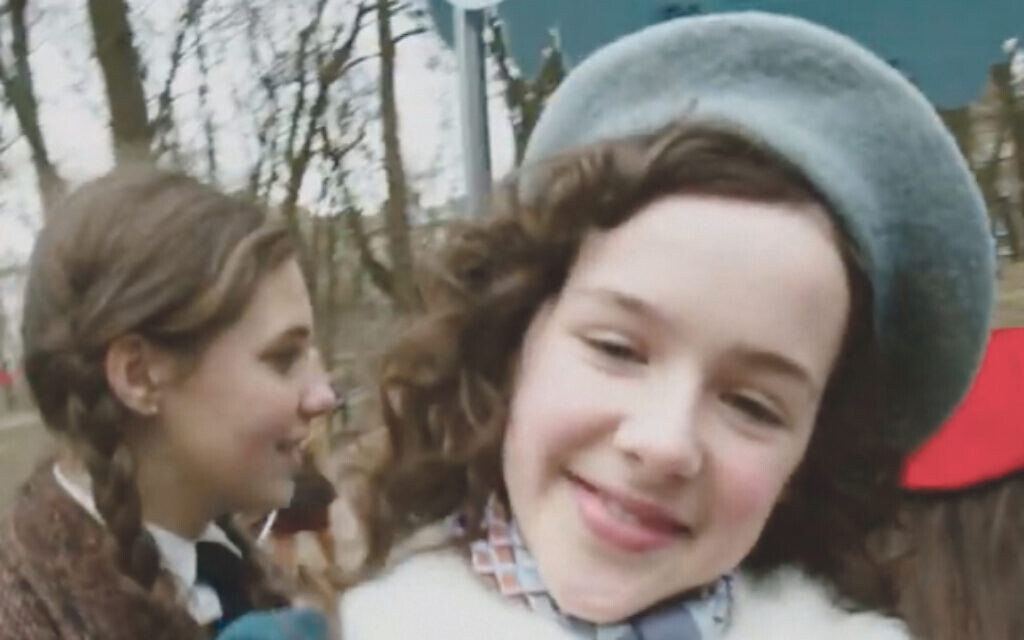Progressively Speaking: How do we teach the young about the Holocaust?
Rabbi Sandra Kviat reflects on the use of new technology and media to educate on the Shoah
Telling children about the Holocaust is one of the hardest things a parent or teacher has to face when educating the next generation.
Luckily our community and wider society are blessed with an abundance of resources to help.
A wealth of information and educational packages are offered by the Anne Frank Trust, Yad Vashem, the International Holocaust Remembrance Alliance and the Holocaust Memorial Day Trust, which suggest not being afraid to approach the subject, keeping the content age-appropriate, putting the history into context and giving time for self-reflection.
Get The Jewish News Daily Edition by email and never miss our top stories Free Sign Up
What is vital is having survivors speak in our schools and cheders, so that we can hear first hand what they went through, as well as a visit to the National Holocaust Centre and Museum in Newark, Nottinghamshire, with its exhibitions and talks suitable for different age ranges.
Another key issue is to focus not only on the death and degradation, but also on how people maintained their sense of Jewish identity.
One American synagogue recently used a photo of a seder in a ghetto as part of this approach, arguing that we shouldn’t allow only Nazi images and timelines to dictate our teaching and learning, but rather to tell the story from pictures, literature, art and music left behind by that generation.
We need the story to begin before the rise of the Nazis and to continue beyond the liberation of the camps.
Social media are also being used for innovative approaches to Holocaust education.
Eva Stories (pictured) is a colourful, Instagram retelling of the true story of a 13-year-old Hungarian girl who died in Auschwitz, complete with hashtags and emojis. It has 1.4 million followers.
This can be an effective way of teaching a generation through the technologies they are most familiar with. But if not done properly it can be in bad taste and crude.
There is no one answer to how we should teach young people about the Holocaust, or which forms of technology are acceptable. The core of how we teach has to be grounded in care, respect and honouring. We should strive to tell stories that are reliable, authentic and relatable, so that Holocaust education continues to be a source of learning, connection and care for others and ourselves.
- Rabbi Sandra Kviat serves Crouch End Chavurah

Thank you for helping to make Jewish News the leading source of news and opinion for the UK Jewish community. Today we're asking for your invaluable help to continue putting our community first in everything we do.
For as little as £5 a month you can help sustain the vital work we do in celebrating and standing up for Jewish life in Britain.
Jewish News holds our community together and keeps us connected. Like a synagogue, it’s where people turn to feel part of something bigger. It also proudly shows the rest of Britain the vibrancy and rich culture of modern Jewish life.
You can make a quick and easy one-off or monthly contribution of £5, £10, £20 or any other sum you’re comfortable with.
100% of your donation will help us continue celebrating our community, in all its dynamic diversity...
Engaging
Being a community platform means so much more than producing a newspaper and website. One of our proudest roles is media partnering with our invaluable charities to amplify the outstanding work they do to help us all.
Celebrating
There’s no shortage of oys in the world but Jewish News takes every opportunity to celebrate the joys too, through projects like Night of Heroes, 40 Under 40 and other compelling countdowns that make the community kvell with pride.
Pioneering
In the first collaboration between media outlets from different faiths, Jewish News worked with British Muslim TV and Church Times to produce a list of young activists leading the way on interfaith understanding.
Campaigning
Royal Mail issued a stamp honouring Holocaust hero Sir Nicholas Winton after a Jewish News campaign attracted more than 100,000 backers. Jewish Newsalso produces special editions of the paper highlighting pressing issues including mental health and Holocaust remembrance.
Easy access
In an age when news is readily accessible, Jewish News provides high-quality content free online and offline, removing any financial barriers to connecting people.
Voice of our community to wider society
The Jewish News team regularly appears on TV, radio and on the pages of the national press to comment on stories about the Jewish community. Easy access to the paper on the streets of London also means Jewish News provides an invaluable window into the community for the country at large.
We hope you agree all this is worth preserving.
-
By Laurent Vaughan - Senior Associate (Bishop & Sewell Solicitors)
-
By Laurent Vaughan - Senior Associate (Bishop & Sewell Solicitors)
-
By Laurent Vaughan - Senior Associate (Bishop & Sewell Solicitors)
-
By Laurent Vaughan - Senior Associate (Bishop & Sewell Solicitors)























